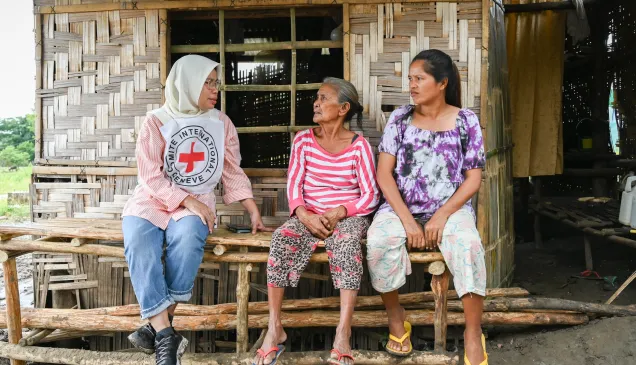2020: A year in pictures
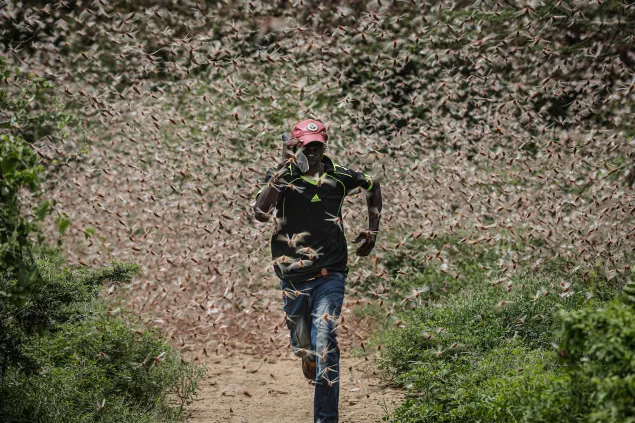
Large swarms of these locusts have infested over 70 thousand hectares of land which the United Nations Food and Agriculture Organisation (FAO) has described as the 'worst situation in 25 years' in the Horn of Africa.
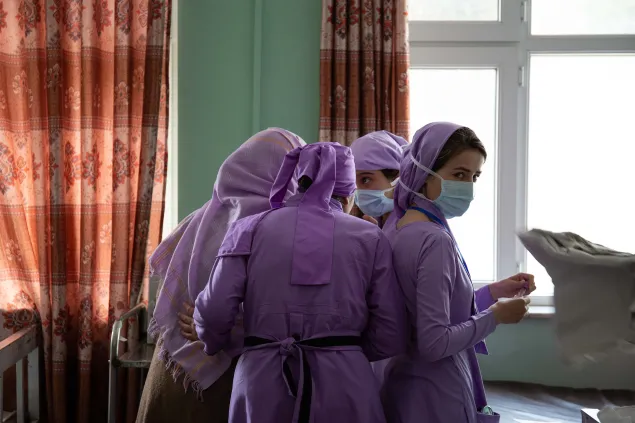
Afghanistan - Trainee midwives prepare the labor ward for the first patient of the day at Mirwais Regional Hospital in Kandahar, Afghanistan
The maternity ward is a busy place; some days as many as ninety babies are delivered here. Midwives are some of Afghanistan’s most vital frontline healthcare workers, fighting to ensure that women and babies survive childbirth.
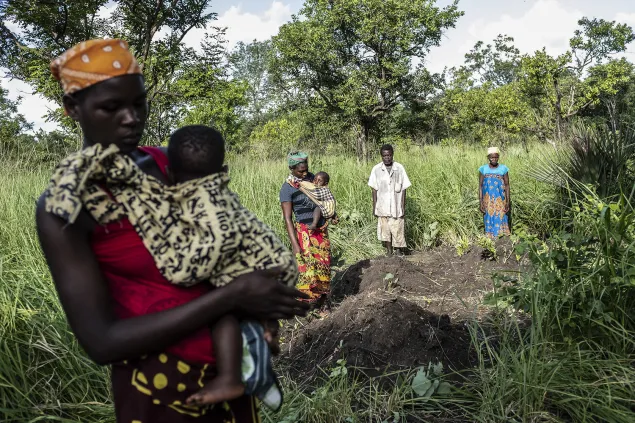
Mozambique - In 2019, Cyclone Idai struck Mozambique, Zimbabwe and Malawi affecting over three million people across the southern African countries
One year on, the ICRC helps families with dignified burial rituals for their deceased loved ones. While nothing will replace the loss for these families, knowing their loved ones received dignified burial and having a place where they can mourn and pay their respect makes a huge difference.
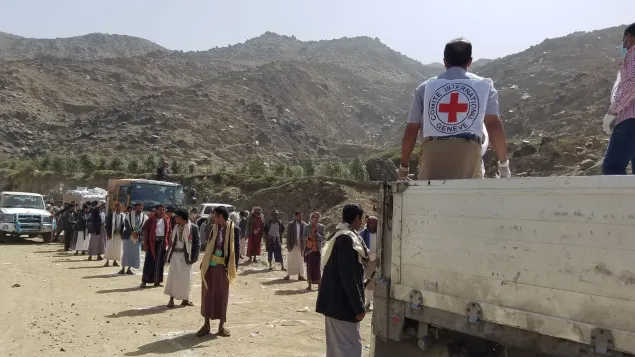
Yemen - In March 2020 as COVID-19 was recognised as a global pandemic by WHO, the ICRC had to adjust our ways of reaching communities affected by conflict
With respect to the challenges the pandemic presented, 21,000 people received food and hygiene supplies.
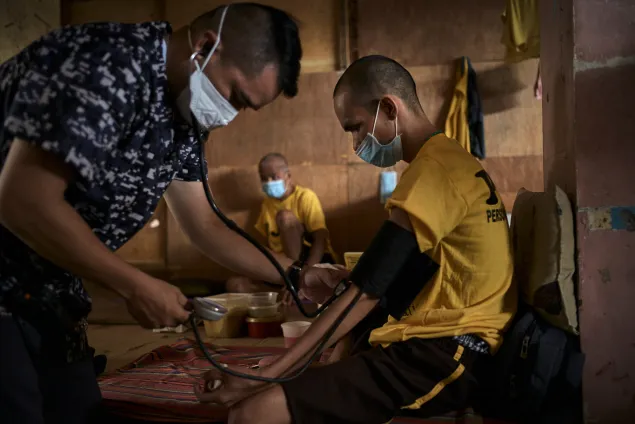
Philippines - Tuberculosis has been present in detention facilities in the Philippines for many years
While COVID-19 is caused by a virus and Tuberculosis by bacteria, both may have devastating effects in places of detention due to overcrowding, poor ventilation and hygiene conditions which may accelerate the spread of such diseases.
In order to prevent the potential spread of COVID-19 in detention centres, past experience in containing Tuberculosis in the Philippines determined that health measures needed to be adjusted for the safety of detainees and facility staff. Calamba, Regional tuberculosis infirmary.
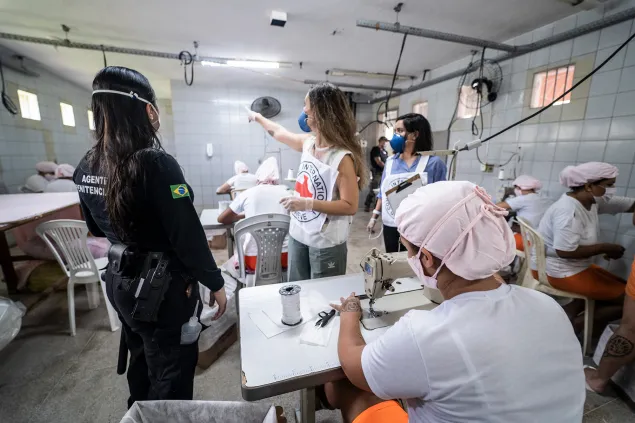
Brazil - To prevent COVID-19 pandemic in places of detention in Fortaleza, the ICRC donated sewing and cleaning machines, and essential supplies to produce protective equipment
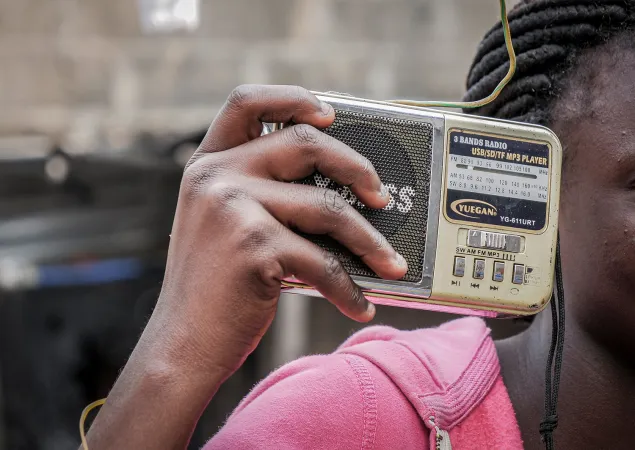
Democratic Republic of Congo - Unfortunately for many around the world, lockdown meant being locked in with their abuser
COVID-19 is more than a health crisis as cases of sexual and gender-based violence escalated. We are seeking to address these gaps by updating referral pathways and sharing them with communities via radio broadcasts.
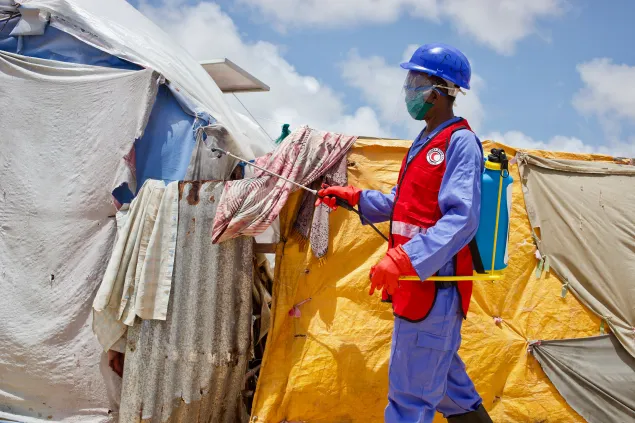
Somalia - A Somali Red Crescent staff disinfects tents in the Qaaboowe internally displaced camp in Mogadishu where COVID-19 outbreak could spread massively.
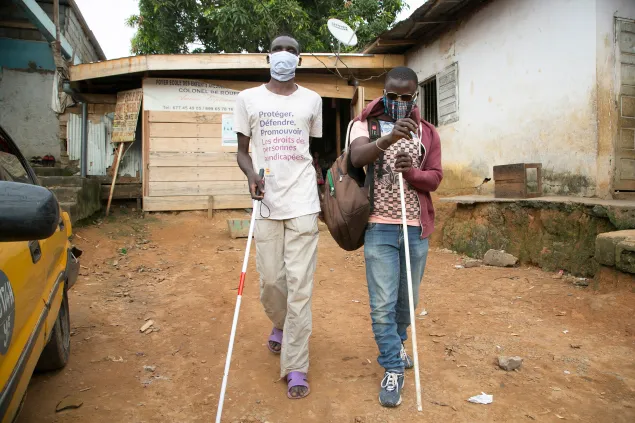
Cameroon - For the children and young adults living in the Foyer Colonel-Daniel-de-Rouffignac for visually impaired people, the virus meant feeling even more isolated
During the height of the pandemic, the residents could barely go out, and taking precautionary measures was particularly difficult.
To help them in these difficult times, the Cameroon Red Cross Society has provided handwashing stations, hygiene items, and taught the children how to follow precautionary measures.
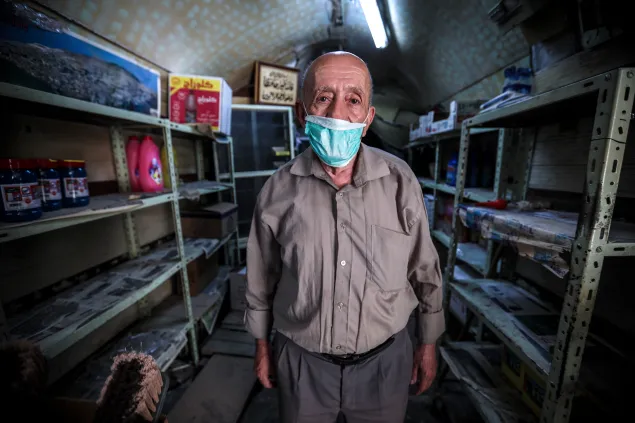
West Bank - Nablus. Haj Abdul Rahim Abu Ghazaleh, is the owner of a small grocery store in the old city which, prior to COVID-19 outbreak, was filled with visitors from other Palestinian cities
Haj Abdul Rahim says “the middle class has been crushed” by the pandemic.
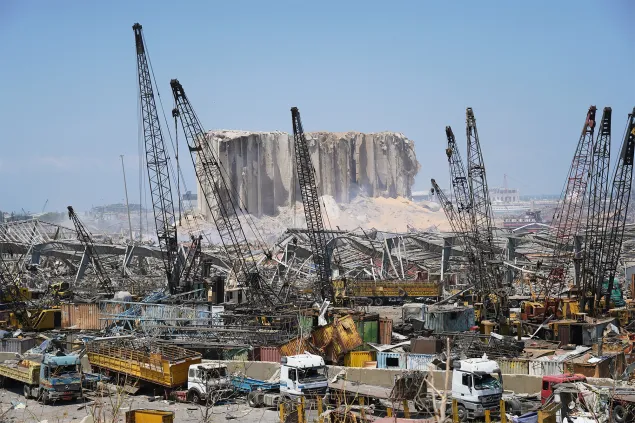
Lebanon - Over 180 dead, 6,000 injured, 300,000 homeless, including 100,000 children without shelter, in addition to missing persons
4 August marks another watershed in the series of dates of tragic events as two massive explosions hit Beirut.
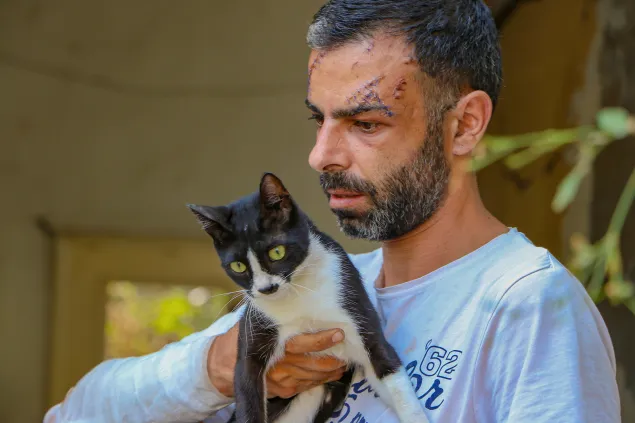
Lebanon - Elie Al-Chayeb had to lie on top of his daughter and his wife to protect them from the blasts on 4 August
Their house turned into rubble in a split of second, shattering belongings and memories.
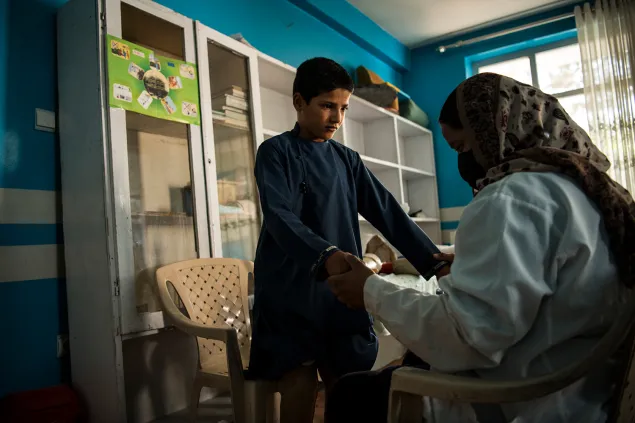
Afghanistan - The country remains one of the deadliest places in the world for civilians
Prosthetics specialist and ICRC's former patient Mahpekay Sediqy fits Abdul Rashid (double amputee) for a new prosthesis at the Kabul Orthopedic Organisation (KOO). Abdul Rashid lost a part of a leg when a rocket-propelled grenade blasted when the grenade was accidentally brought home in 2018.
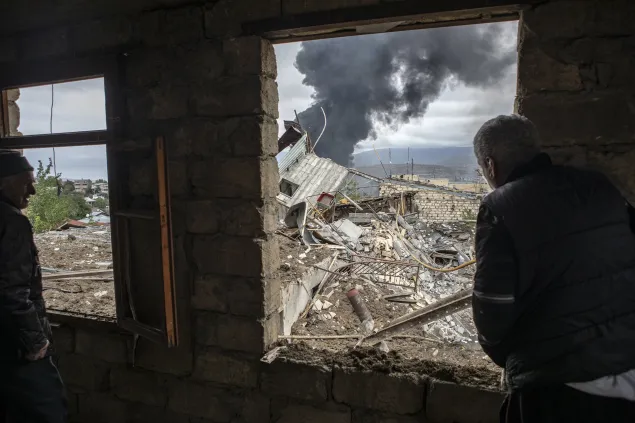
Nagorno-Karabakh conflict - The long-standing conflict has inflicted suffering and loss on people since the 1990s
Over 30,000 people have been killed, more than 4,500 are missing, and thousands have been injured by landmines and unexploded ordnance. In the morning of 27 September 2020, both sides of the conflict resorted to using heavy weaponry in populated areas. Here a man looks out of what is left of a house from a window in a shelled residential building.
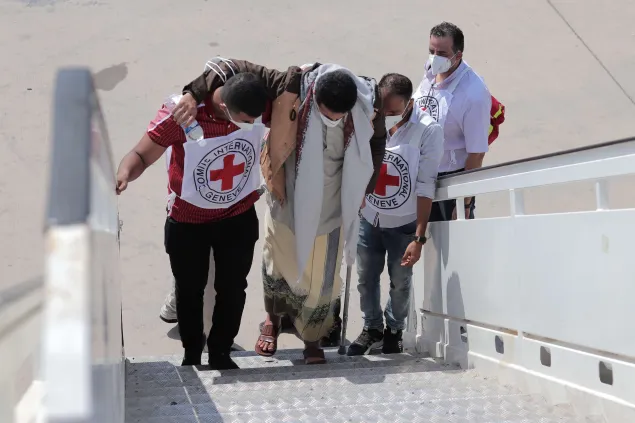
Yemen - More than 1,000 former detainees in relation to the conflict in Yemen were transported back to their region of origin or to their home countries by the ICRC in the largest extraction operation of its kind during the five-and-a-half-year war
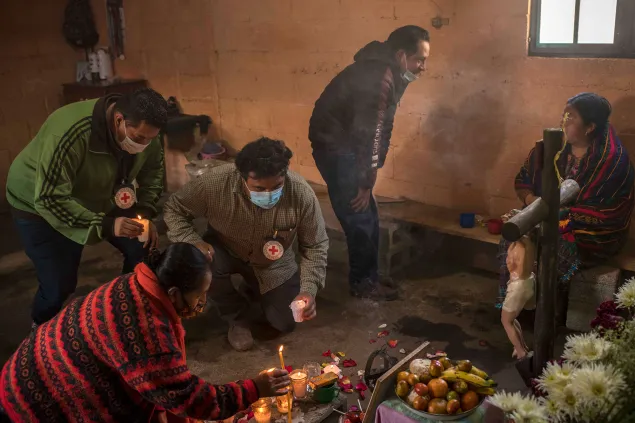
Guatemala - Día de los Muertos (1-2 November) is widely celebrated as an opportunity for friends and family to honour their departed loved ones
ICRC staff, Luis Pedro Dominguez Gonzalez and Erick Raul Garcia Quinones, attend the honouring of Encarnación Apen Curruchic, who went missing in 1982 when he was 18 due to the Guatemalan armed conflict. His remains were never found.
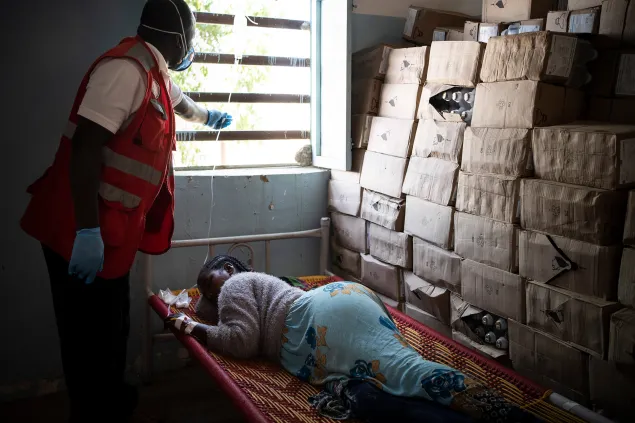
Sudan - Hamdayet refugee camp, a Sudanese Red Crescent Society healthcare worker treats an Ethiopian woman who fled the fighting in Tigray and has just arrived at the refugee camp
2020 was an exceptional and unprecedented year. From the COVID-19 pandemic outbreak to the Beirut explosions; the release operation of former detainees in Yemen to the Nagorno-Karabakh conflict escalation. This collection of images capture important moments of our humanitarian response, in collaboration with the Red Cross and Red Crescent Societies, to assist those affected by armed conflict and natural disasters.



